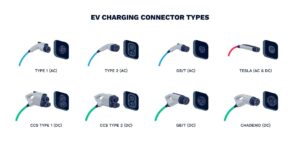Dyson vacuum cleaners have revolutionized the way we clean our homes, offering unparalleled suction power and cutting-edge technology. Yet, a common concern many Dyson owners have is the longevity of their vacuum’s battery life. So, how long do Dyson vacuum batteries last? Well, you’ve come to the right place! In this article, we will delve into the expected lifespan of Dyson vacuum batteries and provide you with tips on how to maximize their longevity. Whether you’re a Dyson enthusiast or contemplating investing in one, this information will help you make the most out of your cleaning experience. Let’s get started!
How Long Do Dyson Vacuum Batteries Last?
Dyson is a well-known brand when it comes to high-quality vacuum cleaners. One important aspect of Dyson vacuums is the battery life. After all, the battery is what powers the vacuum cleaner and determines how long you can clean before needing to recharge. In this article, we will delve into the topic of how long Dyson vacuum batteries last and address any pertinent subtopics, providing you with a comprehensive understanding of this important aspect.
The Importance of Battery Life
The battery life of a vacuum cleaner plays a crucial role in its performance and usability. Nobody wants to constantly stop in the middle of cleaning to recharge their vacuum. Understanding how long a Dyson vacuum battery typically lasts can help you plan your cleaning sessions and ensure you have enough power to complete the job at hand.
Factors Affecting Dyson Vacuum Battery Life
There are several factors that can influence how long a Dyson vacuum battery lasts. It’s important to be aware of these factors in order to maximize the battery life and overall performance of your Dyson vacuum cleaner. Let’s explore these factors in detail:
Battery Type
Dyson vacuums use a variety of battery types, including nickel-cobalt-aluminum (NCA) and nickel-manganese-cobalt (NMC) batteries. The type of battery can impact the overall lifespan and performance. NCA batteries, for example, are known for their high energy density and longer lifespan compared to NMC batteries.
Vacuum Model
Different Dyson vacuum models have different battery capacities and power requirements. Some models may have larger batteries that provide longer cleaning times, while others may have smaller batteries with shorter operating durations. When choosing a Dyson vacuum, it’s important to consider the specific model’s battery specifications and match them to your cleaning needs.
Vacuum Cleaning Mode
Dyson vacuums often come with multiple cleaning modes, such as regular mode, boost mode, and eco mode. These modes affect the vacuum’s power usage and, consequently, the battery life. Boost mode, for example, provides extra suction power but drains the battery more quickly. Choosing an appropriate cleaning mode for the task at hand can help extend the battery life.
Cleaning Conditions
The cleaning conditions can also impact the battery life of a Dyson vacuum cleaner. Factors such as the type of surface being cleaned (carpet, hardwood, etc.), the level of dirt and debris, and the frequency of use can all impact how long the battery lasts. For example, vacuuming carpets with deep pile requires more power and may drain the battery faster compared to vacuuming a lightly soiled hardwood floor.
Typical Battery Life of Dyson Vacuums
Now that we’ve explored the factors that can affect Dyson vacuum battery life, let’s discuss the typical battery life you can expect from various Dyson vacuum models. It’s important to note that these are general estimates and individual results may vary.
Dyson V11
The Dyson V11 is one of Dyson’s flagship cordless vacuum models known for its powerful suction and advanced features. On average, the Dyson V11 provides a battery life of up to 60 minutes when using eco mode. In boost mode, the battery life is reduced to approximately 10-15 minutes. The actual battery life can vary depending on factors such as the cleaning mode, surface type, and attachments used.
Dyson V10
The Dyson V10 is another popular cordless vacuum model that offers excellent cleaning performance. It typically provides a battery life of up to 60 minutes in eco mode and approximately 15-20 minutes in boost mode. Just like the Dyson V11, the battery life can vary based on the cleaning conditions and chosen cleaning mode.
Dyson V8
The Dyson V8 is an older model but still a reliable choice for many users. It offers a battery life of up to 40 minutes in regular mode and about 7-10 minutes in boost mode. While the battery life may be shorter compared to newer models, it is still sufficient for most cleaning tasks.
Extending Dyson Vacuum Battery Life
While Dyson vacuums already provide decent battery life, there are several steps you can take to extend the battery life even further. By implementing these tips, you can get the most out of your Dyson vacuum and enjoy longer cleaning sessions without interruption:
Proper Charging and Storage
– Always fully charge the battery before using your Dyson vacuum for the first time.
– Avoid leaving the vacuum plugged in for extended periods after it has reached a full charge, as this can degrade the battery over time.
– When storing the vacuum, ensure the battery is not fully depleted or fully charged. Aim for a charge level between 30% and 70% for optimal battery health.
Optimize Cleaning Modes
– Utilize the most appropriate cleaning mode for the task at hand. For routine cleaning, eco mode is usually sufficient and provides longer battery life.
– Reserve boost mode for tougher cleaning jobs that require extra suction power.
– Experiment with different cleaning modes to find the balance between cleaning effectiveness and battery life.
Regular Maintenance
– Keep the dustbin and filters clean, as clogged filters can put additional strain on the motor and battery.
– Regularly check for blockages in the vacuum’s nozzle and brush bar, as obstructions can increase power consumption and reduce battery life.
– Follow Dyson’s recommended maintenance schedule to ensure optimal performance and prolong battery life.
Utilize the Docking Station
– Use the provided docking station to store and charge your Dyson vacuum. The docking station is designed to optimize battery charging and can help maintain the battery’s health over time.
In conclusion, the battery life of Dyson vacuums varies depending on factors such as the model, battery type, cleaning mode, and cleaning conditions. Understanding these factors and implementing the tips mentioned above can help you maximize the battery life of your Dyson vacuum and ensure efficient and uninterrupted cleaning sessions.
Remember, while battery life is an important consideration, it’s also essential to evaluate other features and factors when choosing a Dyson vacuum to meet your specific cleaning needs. So go ahead, enjoy the convenience of cordless cleaning with a Dyson vacuum, and make the most out of its battery life!
Frequently Asked Questions
How long does a Dyson vacuum battery typically last?
A Dyson vacuum battery can last anywhere from 3 to 5 years, depending on usage and care. Frequent use and exposure to high temperatures can shorten the battery life, while proper maintenance and charging habits can help prolong it.
What factors can affect the lifespan of a Dyson vacuum battery?
The lifespan of a Dyson vacuum battery can be influenced by several factors, including frequency of use, cleaning habits, charging practices, and exposure to extreme temperatures. It’s essential to use and store the vacuum within the recommended guidelines to optimize the battery’s life.
Can I replace the battery in my Dyson vacuum?
Yes, most Dyson vacuum models have replaceable batteries. Depending on the model, you can either purchase a new battery directly from Dyson or from authorized retailers. It’s always recommended to use genuine Dyson batteries for optimal performance and compatibility.
Are there any tips to extend the battery life of my Dyson vacuum?
Yes, there are a few tips to help extend the battery life of your Dyson vacuum:
– Avoid fully draining the battery before recharging. It’s best to recharge the vacuum once it reaches around 20-30% battery level.
– Store the vacuum in a cool, dry place to prevent exposure to high temperatures.
– Clean the filter regularly to ensure proper airflow, which can help reduce strain on the battery.
– Avoid overcharging the vacuum. Once it’s fully charged, unplug it from the power source to prevent unnecessary stress on the battery.
Can I use my Dyson vacuum while it’s charging?
No, it is not recommended to use your Dyson vacuum while it’s charging. This can potentially damage the battery and affect its lifespan. Always wait for the vacuum to fully charge before using it again.
Is it normal for the battery life of my Dyson vacuum to decrease over time?
Yes, it’s normal for the battery life of a Dyson vacuum to gradually decrease over time. As the battery ages and undergoes multiple charge cycles, its capacity may diminish. Following proper charging practices and maintenance can help slow down this process.
Final Thoughts
Dyson vacuum batteries typically last for about 30-40 minutes of continuous usage, depending on the model and cleaning mode. While this may not seem like a long time, it is important to note that Dyson vacuums are designed to deliver high suction power, which can contribute to a shorter battery life. However, Dyson has made advancements in battery technology over the years, with some of their newer models offering up to 60 minutes of runtime. To maximize the lifespan of your Dyson vacuum battery, it is recommended to fully charge it before each use and avoid overcharging. So, if you’re wondering how long do Dyson vacuum batteries last, it can vary but generally falls within the 30-40 minute range.



